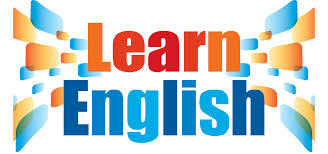English Auxiliaries
An auxiliary verb helps the main verb and is
also called a helping verb or Helping verbs or auxiliary verbs are used
in conjunction with main verbs.
List of auxiliary verbs
This is a list of English auxiliary verbs
be (am, are, is, was, were, being),
can,
could,
do (did, does, doing),
have (had, has, having),
may,
might,
must,
shall,
should,
will,
would
1) I shall go now.
2) He had won the election.
3) They did write that novel together.
4) I am going now.
5) He was winning the election.
6) They have been writing that novel for a long time.
Short Answer with Auxiliaries
1) Does he like write?
Yes he does or no he does not
2) Do you play tennis?
Yes I do or no I do not
3) Are they coming tomorrow?
Yes they are or no they are not
4) Did she go to the cinema yesterday?
Yes she did or no she did not
5) Is she painting the house?
Yes she is or no she is not
6) Where you at home on Monday?
Yes I was or no I was not
7) Is she in the bathroom?
Yes she is or no she is not
8) Do you work in India?
Yes I do or no I do not
9) Are you living in India?
Yes I am or no I am not
Telephonic Language
What do you say on the phone in the following situation?
a) Introducing yourself
1) Hello, this is Tom.
2) Hello, Tom speaking.
b) Asking who is the other person is
1) Hello is that Mr. Jackson?
2) Hello is that peter speaking?
c) asking to speak to another person
1) Hi, I would like to speak to John, please.
2) May or could or can I speak to the managing director.
3) Good morning could you please put me through to Mr. smith.
4) Could you connect me to Mr. smith?
d) Connecting people
1) Just a moment I will put you through to him.
2) Yes, Mr. smith is here I am trying to connect you now.
3) Hold on.
4) Just a moment, please.
e) leaving the message
1) Could you take a message?
2) Can I leave a message?
3) Could you ask him to call me back?
f) taking a message
1) Can I take a message?
2) Would you like to leave a message?
g) when you don't understand some on the telephone.
1) Can you repeat that please?
h) when you want to write something down when the person is speaking.
1) Just a moment I will make a note of that.
i) when somebody knocks at the door when you are speaking
1) Just a moment I will be right back.
j) when you return to the phone and another person has been waiting for you
1) Sorry to keep you waiting.
Way to asking permission
a) may
may use for the formal situation.
1) May I ask a question?
2) May I offer you something?
3) May I have this dance?
b) could
use for the neutral situation.
1) Could I use your phone, please?
2) Could you change the appointment?
3) Could we meet later?
3) can
Can use for the informal situation.
1) Can you pass me the salt?
2) Can I have some wine?
3) Can I borrow your pen?
Modal verb
a) can
can use for permission
1)you can eat whatever you want.
2)you can go for walk.
b) can not
can not use for prohibition.
1) you can not do it.
2) you can not go to work.
c) must
must use for order.
1) You must finish the meal.
2) You must stay at home for three days.
3) You must look after yourself.
d) must not
use for string prohibition.
1) You must not drink alcohol.
2) You must not do anything.
3) You must not jump.




















